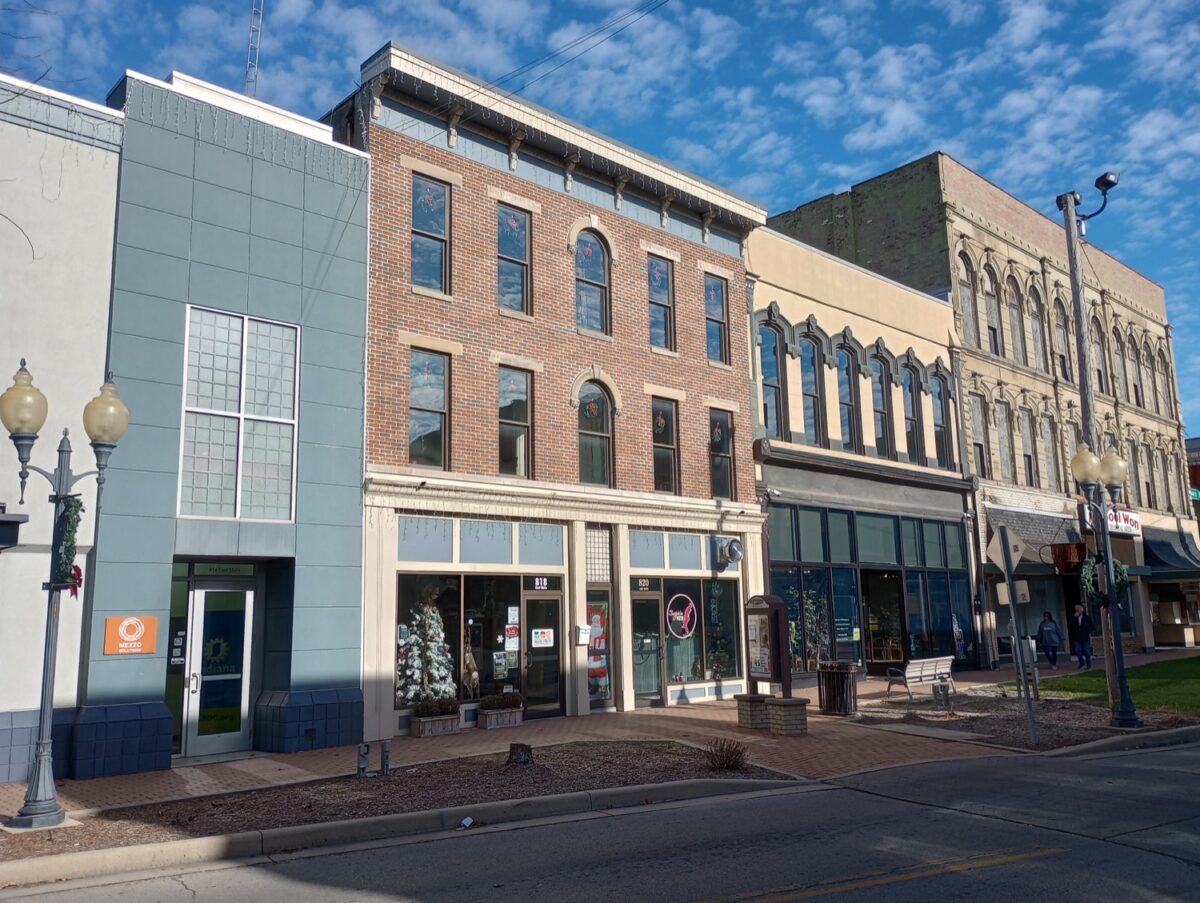Commissioner Brad Dwenger spoke with downtown Richmond business owners, and what he heard convinced him to vote against funding for a downtown apartment project.
Dwenger said during the Dec. 20 commissioners meeting that those business owners do not support the $36 million project at the former Elder-Beerman site. Commissioners did pass 2-1 the $2 million from the consolidated EDIT fund that’s part of the project funding package. The Economic Development Corporation of Wayne County board and Wayne County Council had previously approved that cash contribution.
“They have been forgotten,” Dwenger said of the business owners. “They have felt like they have been abandoned, and they can’t support this project because of that. I’m an elected official and too many politicians have been elected and forget where they came from and why they were elected — I refuse to do that. My people that I spoke to have said we’re not for that, and that’s why I’m not going to vote for this project. I’m here to represent the people; government doesn’t always know best.”
Dwenger noted that the $25 million Lilly Endowment funding received by Earlham College includes downtown investment but excludes established businesses, again leaving them feeling left out. Valerie Shaffer, the EDC president, said that Hoosier Enduring Legacy Program money is earmarked for downtown businesses and those businesses are being considered during the state’s Regional Economic Acceleration and Development Initiative’s second phase.
Commissioner Jeff Plasterer agreed with Dwenger’s opinion that Richmond needs a comprehensive downtown plan, but he also noted the initiatives that are in place to support downtown Richmond.
“I think we’re headed in the right direction; there is support for that building,” Plasterer said. “I’ve talked to people who do support this project and the general direction that we’re moving in.”
Commissioner Mary Anne Butters said she thinks the project, with approximately 200 to 300 residents living downtown, will benefit downtown merchants.
“I think in a few years they will find that this will be the greatest boon to their business that they’ve seen from government in a long time,” Butters said. “I’m voting according to what I’ve seen in other progressive communities who have taken that leap of public-private partnership to advance their communities going forward.”
Dwenger was also concerned about the project’s 150-unit scope and the projected rate range of $1,000 to $1,850 a month. Shaffer said Richmond does not have resort-style apartments such as those planned downtown and the rents align with the Richmond market. Mayor-elect Ron Oler said he didn’t expect a problem filling the units, because they’ll draw residents from neighboring counties in Indiana and Ohio.
Dwenger emphasized that he is all for revitalizing the downtown.
“I’ll be the first one in line to say, ‘You know what, I’m glad it’s successful.’” Dwenger said of the project. “I’m hoping it’s successful.”
Main Street Richmond
Beth Newton, the executive director of Main Street Richmond, requested funding — whether ongoing or one time — from commissioners as it serves the downtown corridor.
“We’ve seen that a strong core makes a strong community,” Newton said.
Main Street Richmond is a nonprofit, so it has no membership income. It employs Newton and Andy Floyd, the director of programs and communication, and maintains two buildings — 814 and 818 E. Main St. — with a $200,000 annual budget. Its area stretches from North E to South E streets and from Richmond High School to 16th Street.
The group supports small businesses however it can, even covering in their shops, if necessary, and promotes local building ownership. It would like to fund water mains to feed required sprinkler systems for downtown apartments, something that would reduce costs for building owners trying to develop their buildings with upstairs living spaces.
Commissioners will take the request under advisement. Plasterer said considerations include the need for a city-county partnership and support for Main Street organizations in Centerville, Cambridge City and Hagerstown.
A version of this article appeared in the January 3 2024 print edition of the Western Wayne News.

